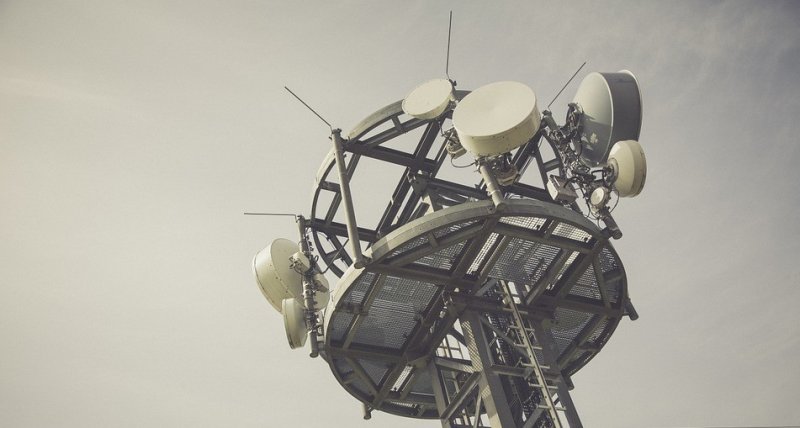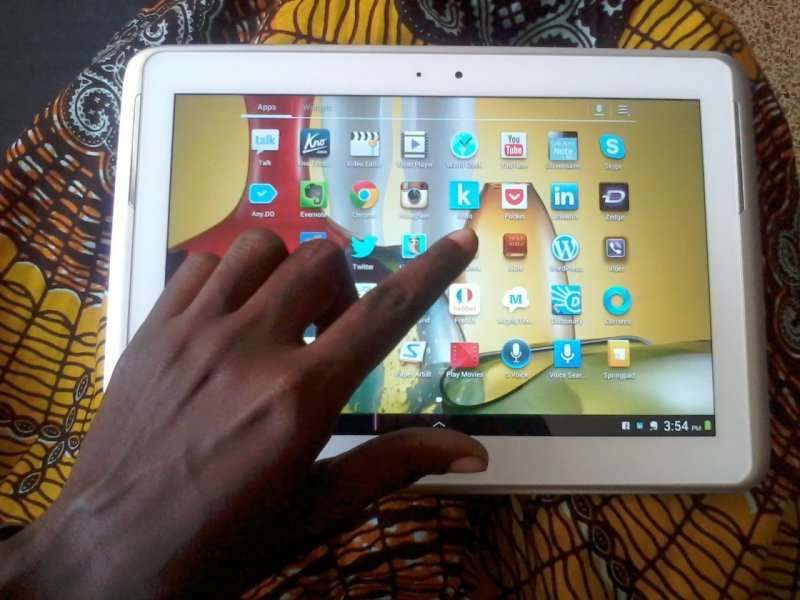By Daniel Mwesigwa |
According to the 2018 third quarter communication industry report by the Uganda Communications Commission (UCC), Uganda has 15 million users connected to the internet, representing a 38% internet penetration rate. However, the cost of access and usage is among the highest in the region, which has hampered the uptake of Information and Communications Technology (ICT). Through the national broadband policy, the government hopes to avert duplication of infrastructure and increase usage of ICT resources, ensure universal access, and streamline licensing regimes for telecommunications and broadcast operators. On the latter, the UCC has embarked upon a review of the current licensing regime aimed at addressing current gaps and limitations to the access and usage of ICT nationally.
The Collaboration on International ICT Policy in East and Southern Africa (CIPESA) joined the Association for Progressive Communications (APC), Rhizomatica, AfChix Uganda chapter, BOSCO Uganda, and the Internet Society to submit comments to the ongoing review of the licensing framework for the telecommunications sector in Uganda.
The submission responded to key concerns raised by the UCC including on issues such as national roaming, effective spectrum allocation, infrastructure sharing, affordability, the gender digital divide, in addition to regulated and cost-oriented pricing.
Among the recommendations in the submission is the need to enable alternative approaches to broadband delivery that can complement existing network operator models. Such approaches include enabling affordable access to spectrum and also creating regulations for community networks and small scale operators to provide access to the underserved, especially in rural areas.
To curb capital flight from mostly foreign-owned telecommunications companies, the proposed licencing framework seeks to compel these companies to list on the local stock exchange. The submission proposes accessible ways through which shares can be traded for example through the mobile money platform. It further re-emphasizes the need for smaller and community run operators since multiple economic benefits from ownership to employment boost and contribute to the local economy.
On the issue of digital exclusivity, the submission stresses that it is unlikely that the gender digital divide in Uganda will be closed if policies and regulations do not actively enable the participation of more women in the telecommunication industry. It, therefore, recommends the adoption of gender-sensitive approaches to closing the gender access gap.
Meanwhile, CIPESA has previously submitted comments to UCC on improving access to ICT for Persons With Disabilities (PWDs).
Find the full submission here.
Uganda Blocks Access to Social Media, VPNs and Dating Sites as New Tax Takes Effect
By Juliet Nanfuka |
As of midnight on July 1, 2018, telecom companies in Uganda blocked access to social media platforms for all users and required them to pay a newly introduced Over-The-Top” (OTT) tax before regaining access. The tax resulted from a March 2018 presidential directive for social media to be taxed to raise resources “to cope with the consequences” of social media users’ “opinions, prejudices [and] insults”.
“In a context in which social media has served as many users’ initial entry point to the internet, this tax could negatively impact the affordability and broader use of the internet, particularly by low-income Ugandans, as well as stifle freedom of expression, association and assembly online.”
Joint oral statement to UN Human Rights Commission on Social Media Taxes by APC, CIPESA, Derechos Digitales and WOUGNET
The directive proposed that up to UGX 400 billion (USD 108 million) per annum could be collected through the taxes. Projections from the June 14 national budget speech for the fiscal year 2018/19 indicated that up to UGX 486 billion (USD 131 million) could be collected annually by 2022. Earlier in May, Uganda’s parliament passed the Excise Duty Act (Amendment) Bill 2018, which introduced a mandatory fee of UGX 200 (USD 0.05) per day of use for services that include messaging and voice calls via Whatsapp, Facebook, Skype and Viber.

The tax will likely push basic connectivity further out of reach for millions. At the USD 0.05 per day, a Ugandan user would need to fork out USD 1.5 per in monthly fees to access the OTT services. That would be hugely prohibitive since the average revenue per user (ARPU) of telecom services in Uganda stands at just USD 2.5 per month.
According to the Alliance for Affordable Internet (A4AI), at the end of 2016, a 1GB mobile broadband plan in Uganda cost more than 15% of average monthly income. The A4AI further states that with the excise duty in place, this cost to connect for Uganda’s poorest will jump by 10%, resulting in just 1GB of data costing them nearly 40% of their average monthly income.
 Section 2 of the Excise Duty Amendment Act provides that the tax will apply to “the transmission or receipt of voice or messages over the internet protocol network and includes access to virtual private networks but does not include educational or research sites prescribed by the Minister by notice in the Gazette.” The Uganda Revenue Authority (URA) has listed sites such as professional networking platform LinkedIn and dating sites such as Badoo and Tinder among those that would be accessed only upon payment. The government has not stated what constitutes educational or research sites.
Section 2 of the Excise Duty Amendment Act provides that the tax will apply to “the transmission or receipt of voice or messages over the internet protocol network and includes access to virtual private networks but does not include educational or research sites prescribed by the Minister by notice in the Gazette.” The Uganda Revenue Authority (URA) has listed sites such as professional networking platform LinkedIn and dating sites such as Badoo and Tinder among those that would be accessed only upon payment. The government has not stated what constitutes educational or research sites.
As of September 2017, Uganda had an internet penetration rate of 48%, in a country of 41 million people. Research shows that at least one in nine internet users in the country is signed up for a social networking site, with Facebook and WhatsApp the most popular. The introduction of the tax has accordingly elicited strong opposition from users including the limitation of payment only through mobile money, Electronic Virtual Cash (EVC) or any electronic wallet.
The Excise Duty Amendment Act also introduced a 1% tax on the value of every mobile money transaction which users will also have to pay in addition to the OTT tax. The Act also raised the tax on airtime for cellular, landline and public payphones from 5% to 12% and increased the tax on mobile money transfers from 10% to 15%.
Who pays the mobile charges incurred by using mobile money to pay the Social Media tax? Is this cost accounted for in your 200/= or is it over and above? #SocialMediaTax
— Evelyn Namara (@enamara) June 29, 2018
Some users are expressing frustration with having to pay twice – first the OTT tax, then the 1% tax on every mobile money transaction – in order to access social media and other blocked sites.
Many social media users have turned to using Virtual Private Networks (VPNs) to remain online and avoid the taxes. This is a similar stance to that taken during 2016, when Uganda had social media shutdowns on two occasions, leading to a surge in VPN use. However, access to some VPN sites – particularly free ones – has also been blocked and knowledge about VPN access and use is largely limited to tech savvy users. Further, there remains concern on the extent to which VPNs will be an affordable option due to their heavy data requirements.
The consumption of data by most of these VPNs will leave a handlful of Ugandans with 2 options.
1. Paying the #SocialMediaTax
2. Going offline for good!
— Q U A B R I E. (@morisatwine) July 1, 2018
A poll conducted by Daily Monitor newspaper on its Twitter handle showed that 19% of the 581 tweeps who participated would spend less time on social media, 11% would stop using social media, while 70% would resort to using VPN.
Further, imposition of the tax has consequences on net neutrality which requires that the Internet be maintained as an open platform on which network providers treat all content, applications and services equally, without discrimination. The tax effectively limits access to social media sites which are a primary entry point for many new users to the internet in developing countries including Uganda. Indeed, it is in social media platforms that many have found relatable local content including avenues for knowledge exchange, civic participation and economic opportunity.
We echoed @A4A_Internet call to the #Uganda government on repealing the #SocialMediaTax & focus on making access to the internet more inclusive and affordable for more citizens!https://t.co/dd9ZENxSsJ#InternetFreedomAfrica pic.twitter.com/hdSZVXjpkz
— CIPESA (@cipesaug) July 1, 2018
Telecommunications companies had previously sought to tap into the popularity of OTTs by offering competitive social medias data packages – such as such as MTNs SWIFT (Snapchat, WhatsApp, Instagram, Facebook and Twitter) and WTF (WhatsApp, Twitter, Facebook) – resulting in what was popularly referred to as “data price wars” that led to a drop in the price of access.
Meanwhile, the state also found value in the use of social media as an avenue for engaging with citizens and required all Ministries, Departments and Agencies (MDAs) to pursue a social media strategy to promote state-civic interaction which aimed at “improving effectiveness of communication, sharing of information and open engagement and discussions with the Public.” Results of the Uganda national IT survey 2017/18 indicated that 92% of MDAs have a social media presence with most using Facebook, Twitter and WhatsApp as their primary platforms for information dissemination and engagement with citizens.

The Uganda government did not conduct any public consultations before introducing the OTT tax, which is testament to the absence of a multi-stakeholder model of internet governance that would enable the perspectives of diverse stakeholders to support more informed policy decisions. This tax comes on the heels of a directive last March by the communications regulator for registration of online content providers. Uganda is potentially setting a worrying trend for the region, as neighbours Tanzania and Congo have similarly issued stringent online content regulations that threaten citizens’ rights to privacy and freedom of expression and promote self-censorship.
Uganda’s Social Media Tax Threatens Internet Access, Affordability
By Juliet Nanfuka |
Uganda’s president Yoweri Museveni has directed the finance ministry to introduce taxes on the use of social media platforms. According to him, the tax would curb gossip on networks such as WhatsApp, Skype, Viber and Twitter and potentially raise up to Uganda Shillings (UGX) 400 billion (USD 108 million) annually for the national treasury. The ministry has already proposed amendments to the Uganda Excise Duty Act, 2014 to introduce taxation of “over-the-top” (OTT) services, and raise taxes on other telecommunications services.
Section 4 of the Excise Duty (Amendment) Bill 2018, a copy of which was obtained by CIPESA, states: “A telecommunication service operator providing data used for accessing over the top services is liable to account and pay excise duty on the access to over the top services.” The amendment defines such services as the “transmission or receipt of voice or message over the internet protocol network and includes access to virtual network; but does not include educational or research sites which shall be gazetted by the Minister.”
According to the proposals, which could take effect on July 1, 2018, OTT services that commonly include messaging and voice calls via Whatsapp, Facebook, Skype and Viber will attract a tax duty of UGX 200 (USD 0.05) per user per day of access. In his letter, Museveni said the government needed resources “to cope with the consequences” of social media users’ “opinions, prejudices [and] insults”. He proposed a levy of UGX 100 (USD 0.025) per day per OTT user. Prime Minister Ruhakana Rugunda supported the suggestion as did the ICT minister, who stated that the taxes were meant to increase local content production and app innovation in Uganda.
If implemented, the proposed tax will be the latest in a series of government actions that threaten citizens’ access to the internet. Last month, the communications regulator issued a directive calling for registration of online content providers and also released tough restrictions on registration of SIM cards. At the USD 0.05 per day suggested by the finance ministry, a Ugandan user would need to fork out USD 1.5 per in monthly fees to access the OTT services. That would be hugely prohibitive since the average revenue per user (ARPU) of telecom services in Uganda stands at a lowly USD 2.5 per month.
According to the Uganda Communications Commission (UCC), in the 2016-2017 financial year, Uganda’s telecommunications sector contributed UGX 523 billion (USD 141.2 million) to national tax revenue, an increase of 14.3% from the previous year’s UGX 458 billion (USD 123.6 million).
As of September 2017, Uganda had an internet penetration rate of 48% while the mobile subscription stood at 65 lines per 100 persons. Research shows that at least one in nine internet users in the country is signed up for a social networking site, with Facebook and WhatsApp the most popular.
Indeed, social media and by extension OTT services, are key avenues for public discourse, service delivery and political engagement. As per the recently released results of the national IT survey 2017/18, 92% of MDAs have a social media presence with most using Facebook, Twitter and WhatsApp as their primary platforms for information dissemination and engagement with citizens. Meanwhile, telecommunications companies have tapped into the popularity of OTTs by offering competitive social media data packages, resulting in what was popularly referred to as “data price wars.”
The amendment bill also proposes a 12% tax for airtime on cellular, landline and public payphones. The latter two previously attracted a 5% tax. The tax on mobile money transfers has been increased from 10% to 15%, while a 1% tax has been introduced to the value of mobile money transactions of receiving and withdrawals.
The proposed taxes do little to support internet affordability in Uganda, which already scores poorly on the Affordability Drivers Index (ADI) that annually assesses communications infrastructure, access and affordability indicators. Currently, 1GB of mobile prepaid data in Uganda costs more than 15% of the average Ugandan’s monthly income. This is much higher than the recommended no more than 2% in order to enable all income groups to afford a basic broadband connection.
The proposed taxes have also raised considerable debate among members of civil society and the business sector, who are concerned that consumers will inevitably be economically affected, while the legal fraternity has called the move unconstitutional. In a country where two social media shutdowns were ordered in a space of three months during 2016, and where some social media users have been prosecuted or arrested over opinions expressed on Facebook and Twitter critical of public officials, these developments are particularly worrying. Already, the perceived high level of surveillance has forced many Ugandans including the media, into self-censorship, turning them away from discussing “sensitive” matters of community or national importance.
The increasing popularity of social media enabled OTT services, brings new regulatory challenges for governments, as many of these services have not required a licence or been required to pay any licensing fee according to the Electronic Frontier Foundation (EFF). However, the regulation of OTT platforms and services may in some cases adversely affect user rights.
On the financial inclusion front, the proposed taxes are also likely to affect mobile money subscriptions and the cost of doing business. In Uganda and across Africa, mobile money has become the primary means of financial transactions, offering new opportunities for productivity and efficiency gains to governments, businesses and individuals.
Feature photo by GotCredit
Gender Digital Divide Persists in Africa
By Juliet Nanfuka |
Last month, the Alliance for Affordable Internet (A4AI) released its Affordability Report 2017 which indicated that while the world will this year mark a significant milestone of 50% global internet penetration, large numbers of women in developing countries remain offline because “they cannot afford to connect.”
The A4AI report’s findings echo earlier reports on the longstanding gender digital gap that is the result of prevailing social and economic barriers including illiteracy, gender roles and various forms of discrimination. In 2013, a report by the Broadband Commission estimated that 200 million more men than women accessed the internet. Similarly, according to the International Telecommunications Union (ITU), in 2016 the difference between the Internet user penetration rates for males and females was largest in Africa (23%) and smallest in the Americas (2%).

Sustainable Development Goal 5: Achieve gender equality and empower all women and girls
The A4AI report cites slow policy development and implementation in many of the poorly performing countries as contributors to high access costs and low internet access, furthering the digital divide. Based on a study of 58 countries globally, the report also shows that only half of these countries have public access policies that are backed by financial support for implementation. Universal Service and Access Funds (USAF), aimed at supporting last mile connectivity, either do not exist or are dormant in over a third of countries. Meanwhile, in 41% of countries studied, key frameworks such as national broadband plans to guide policy reforms needed to achieve universal access are outdated or have never been developed.
In its study, A4AI ranked countries based on an Affordability Drivers Index (ADI) which is calculated based on ICT infrastructure deployment, existing policy frameworks to encourage infrastructure expansion, current broadband adoption rates, and existing policy frameworks to enable equitable access.
Latin American countries occupy the top three spots in the ADI ranking, with Columbia leading, followed by Mexico and Peru. The top five ranked African countries were Mauritius (8th), Morocco (11th) and Nigeria (13th). Botswana, Côte d’Ivoire and Rwanda followed in 15th, 18th and 21st positions, respectively. The lowest ranked were Sierra Leone (56), Ethiopia (55), Burkina Faso (54), Sudan (53) and Cameroon (52).
Table of African Country Ranking
| Africa Ranking | Rank out of 58 countries | Country | ADI Score |
| 1 | 8 | Mauritius | 61.7 |
| 2 | 11 | Morocco | 57.75 |
| 3 | 13 | Nigeria | 56.58 |
| 4 | 15 | Botswana | 55.37 |
| 5 | 18 | Côte d’Ivoire | 53.25 |
| 6 | 21 | Rwanda | 51.48 |
| 7 | 22 | South Africa | 51.2 |
| 8 | 26 | Ghana | 50.01 |
| 9 | 29 | Benin | 48.95 |
| 10 | 30 | Kenya | 48.82 |
| 11 | 31 | Namibia | 48.24 |
| 12 | 32 | Uganda | 47.93 |
| 13 | 34 | Tunisia | 47.23 |
| 14 | 36 | Egypt | 45.07 |
| 15 | 37 | Zambia | 44.95 |
| 16 | 38 | Gambia | 44.94 |
| 17 | 39 | United Republic Of Tanzania | 43.73 |
| 18 | 44 | Mali | 40.81 |
| 19 | 45 | Mozambique | 40.16 |
| 20 | 47 | Senegal | 39.07 |
| 21 | 50 | Zimbabwe | 34.97 |
| 22 | 51 | Malawi | 34.64 |
| 23 | 52 | Cameroon | 33.71 |
| 24 | 53 | Sudan | 32.16 |
| 25 | 54 | Burkina Faso | 29.68 |
| 26 | 55 | Ethiopia | 22.22 |
| 27 | 56 | Sierra Leone | 21.76 |
Of the 27 African countries studied, all but three (Mali, Senegal and Sierra Leone) had broadband policies. Meanwhile, USAF were found to be inactive or not disbursing funds in Kenya, Mali, Mozambique, Namibia, Sierra Leone, Tunisia and Zimbabwe. Active and funded USAFs were reported in Benin, Botswana, Cameroon, Côte d’Ivoire, Egypt, Ghana, Mauritius, Morocco, Nigeria, Rwanda, Senegal, South Africa, Sudan, Tanzania, Uganda, and Zambia. Burkina Faso, Ethiopia, Gambia, and Malawi had no USAF at all.
Nonetheless, the A4AI report recognises efforts by some African governments in pushing for affordable access and wider penetration for lower income groups, including through deploying universal access funds towards last mile connectivity projects, flexible operator licensing regimes, infrastructure sharing and enforcement practices.
Even then, the monthly price of 1GB mobile broadband in many African countries averaged 13% of monthly income. Only Mauritius, Tunisia, Egypt and Sudan had data plans of less than 2% of average monthly income. Sierra Leone, Malawi and Uganda had the most expensive plans relative to income, at 51.89%, 45.53% and 21.71% respectively.
The Web Foundation’s Gender Gap Audit (2016), based on research conducted in 10 countries (including Kenya, Mozambique, Ghana, Uganda, Nigeria and Egypt in Africa), also raised concerns about the gender digital divide. It stated that, “without a major escalation of policy effort and investment, most of the benefits of technological change in all 10 countries will be captured by men — making gender inequality worse, not better.”
Even when women own mobile phones, there is a significant gender gap in mobile phone usage, which prevents them from reaping the full benefits of mobile phone ownership.
Connected Women Report, 2015
Despite the promise of inclusion offered by ICT, several African women remain on the lower rungs of internet access and use. While some national strategies attempt to address increased gender equality in internet access, this cannot be achieved where progressive policies are not being implemented.




